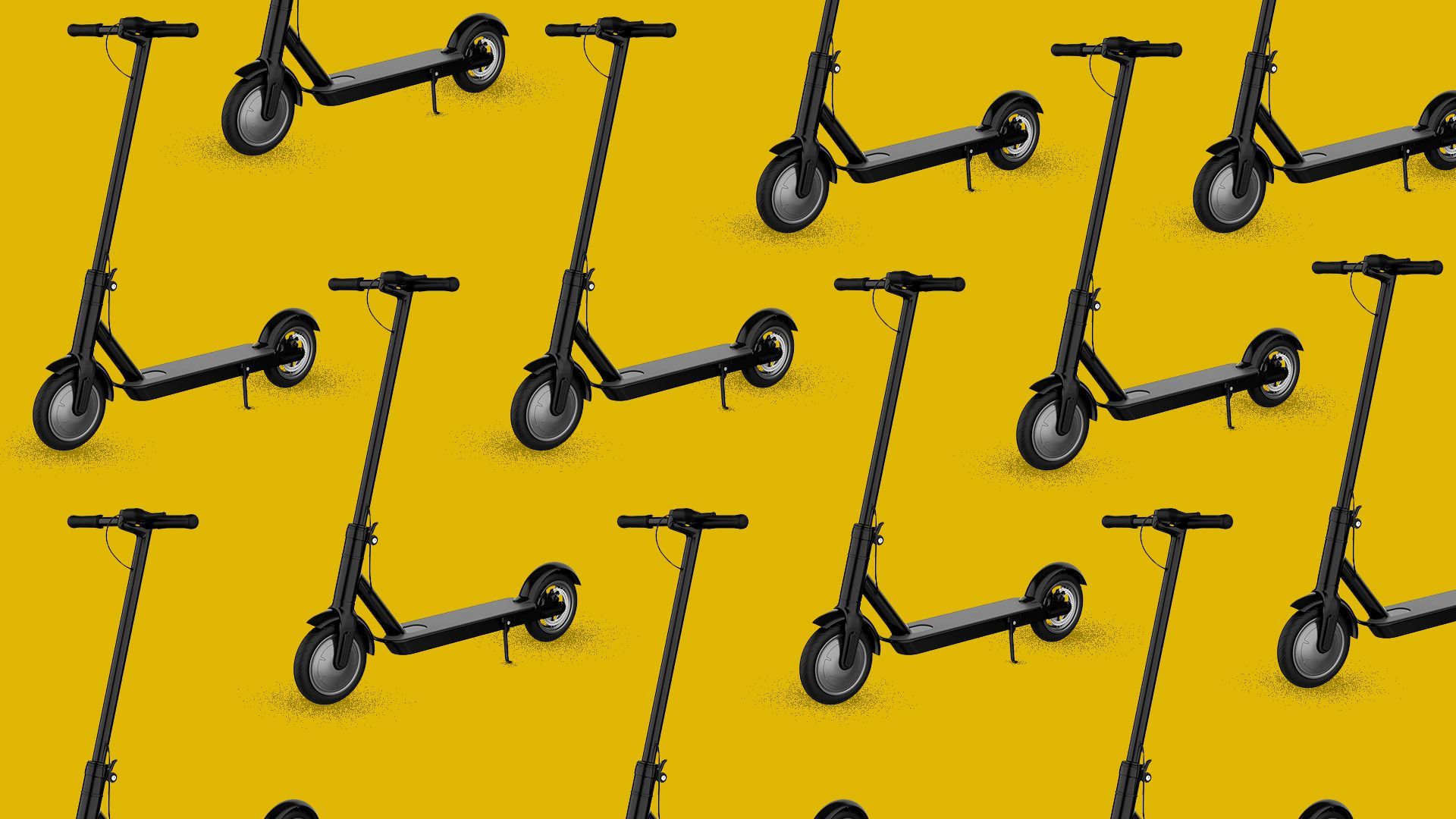Scooters in position for solid comeback
Add Axios as your preferred source to
see more of our stories on Google.

Illustration: Aïda Amer/Axios
Scooter companies largely survived, and in some ways thrived over the past year, despite setbacks early on in the pandemic — and that momentum is expected to grow.
Why it matters: Social distancing, coupled with hybrid and permanent work from home arrangements and worker relocation patterns have changed transportation needs and cities' attitudes.
- Initial use of U.S. e-scooter and bikeshare systems dropped off in early 2020, peaked in the fall, and fell again in late winter.
- Demand is expected to come back strong over the next year, according to a consumer survey by McKinsey that projected e-scooter rides to grow about 12% over 2019 levels.
Driving the news: New York City's pilot program is starting soon and makes the case for micro-mobility as an alternative, cheaper mode of transport.
- 3,000 Bird, Lime and Veo e-scooters are expected to be available in the East Bronx starting in the early summer for a pilot program, the city announced this month.
- “Here, in the East Bronx, many people live in transit deserts with public transportation far away from their homes. The Bronx was disproportionately impacted by the COVID-19 pandemic, making the need for affordable, accessible transportation that allows safe distancing for public health, extremely important,” Council Member Fernando Cabrera said in a statement.
- New York City’s decision on any permanent shared-scooter system would be hugely impactful as it could become the biggest U.S. market for scooters.
Around the country: Cities that experimented with pilot programs before the pandemic are considering the option again.
- Raleigh officials are in talks to bring back scooters after companies Bird and Lime abandoned plans in 2019 due to “burdensome regulations.”
- Chicago’s transportation department is looking into permanent options.
- Scooter companies may also benefit from working with real estate developers to design living communities with micro-mobility options.
- Topeka and Hartford are among cities debuting e-scooter pilots as well.
Yes, but: Scooters are still sensitive to weather and economic changes.
- After seeing sky-high valuations prior to the pandemic, scooter companies like Bird and Lime had to make drastic cuts to their workforce when the shutdowns began.
What to watch: Cities are expected to reduce permit fees for scooters and other micro-mobility options as some places like San Francisco shift away from cars.
- As costs to produce scooters comes down and companies identify merger opportunities as a way to operate more efficiently, the ability to sustain scooter-sharing profits will enable further growth, according to McKinsey.
